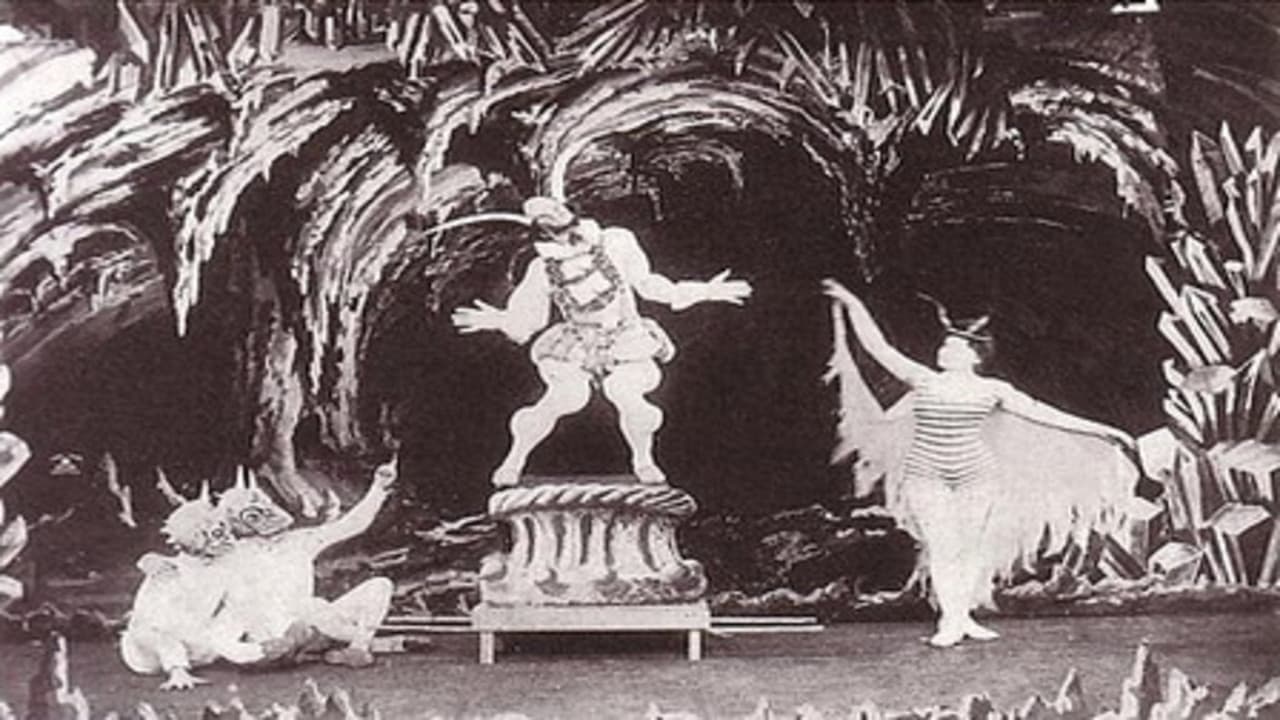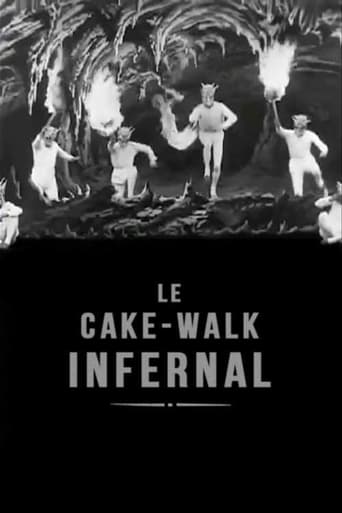



Boring
It's a mild crowd pleaser for people who are exhausted by blockbusters.
View MoreThe best films of this genre always show a path and provide a takeaway for being a better person.
View MoreIf you like to be scared, if you like to laugh, and if you like to learn a thing or two at the movies, this absolutely cannot be missed.
View MoreThere are recurring characters in the Melies canon, and the devil is one of them. Apparently, there is a fixation on what hell would be like and what the devil would look like. I thought the dancing was really fantastic. George's Melies was obviously a multi-talented performer. He was a magician, an actor, director, creator and scene stylist. His closing dance was incredibly addictive. No plot, but has that ever mattered with him?
View MoreWhat does a Melies musical look like? Well with painted sets, bursts of smoke, a few trick camera shots and the appearance of demons, unsurprisingly it looks like most his other films, only here the tricks will not impress anyone already familiar with Melies skills, and there is no story, so that what we are left is basically 5 minutes of what is some pretty uninspiring dancing.I notice a reviewer above me cited this film as a parody of a popular dance at the time. Of course, more than 100 years on, this context is completely lost, and there is not a laugh to be had. Why Melies felt like making a film that danced to the devil is open to interpretation, but there was certainly no enjoyment in it here.
View MoreIt seems incredible to me that a filmmaker who was so far ahead of his peers in 1903 could fall so far behind them within the space of a decade. By 1912 or so Melies' career as a film-maker was over and he ended up selling sweets from a street kiosk for a living. And yet this film is so energetic and inventive, it leaves you wishing he hadn't found it so difficult to adapt as the movies evolved.There's no story to this one as such, just a group of people dancing in various styles against a typically fantastic Melies background which is presumably presumed to be a vision of hell - although the set could easily have been used in Voyage to the Moon. I watched this on YouTube, and the soundtrack was played by a jazz quintet. It's remarkable how well the music suited the visuals and the soundtrack complements the astonishingly lively and kinetic capers on the screen. Definitely worth watching.
View MoreDo they dance in Hell? If they do then this is maybe what it is like. We join the scene of naïve celebration among the dancers when a demon bursts through onto the scene to torment the only black dancer with a version of the cake-walk that has the fires of damnation behind it.Back when many films were very descriptive and very 'real' in their subjects, Méliès must have been a bewildering influence. Films called 'man riding a horse' were wowing them in the moving pictures (or movies as they are still called) by doing exactly what they said on the tin, or in other words, such a film would feature a man on a horse, a training coming into a station and so on. Méliès created short films that contain visual images that still retain their appeal today and will be known to many people (even if they don't know that they are his images!) and this is the modern appeal of his films to me. Sure they are simple in terms of substance and are more style over content but remember these are a century old think of how they must have been viewed then!This is one example but it is not one of his best for my money. The film is weird even watching it now and it is far more about visual impact than about its narrative foundation or substance. It looks great and some of the effects show him to have been years ahead of his time anyone looking for meaning or plot will be annoyed but the focus is visuals and, in this regard, it still works and is very imaginative and strange.I have watched many rubbish films and many good films that have lasted two hours; this film lasts only a very minutes and is well worth the amount of time it took for me to watch it. Méliès' images are still in the public psyche today and this film, while not his most famous, is another good example of why that is the case.
View More